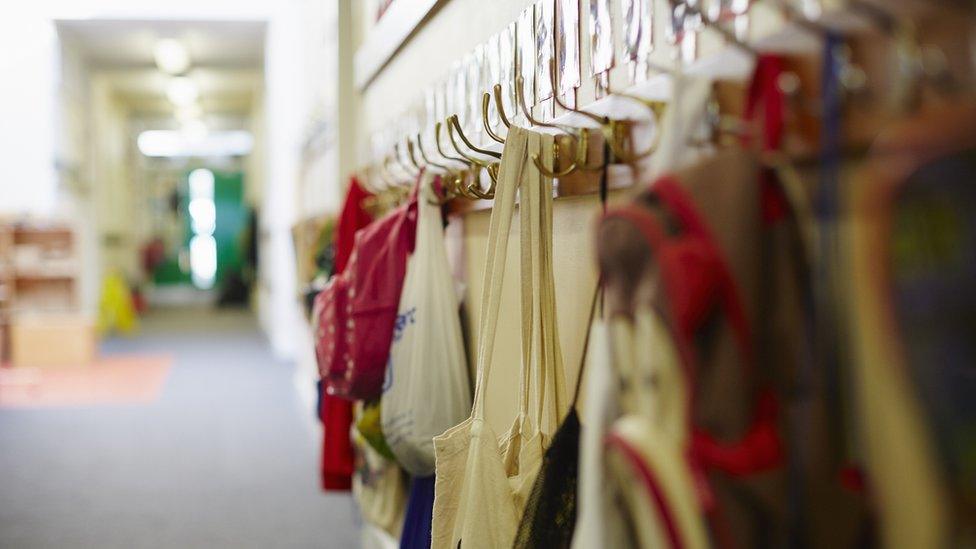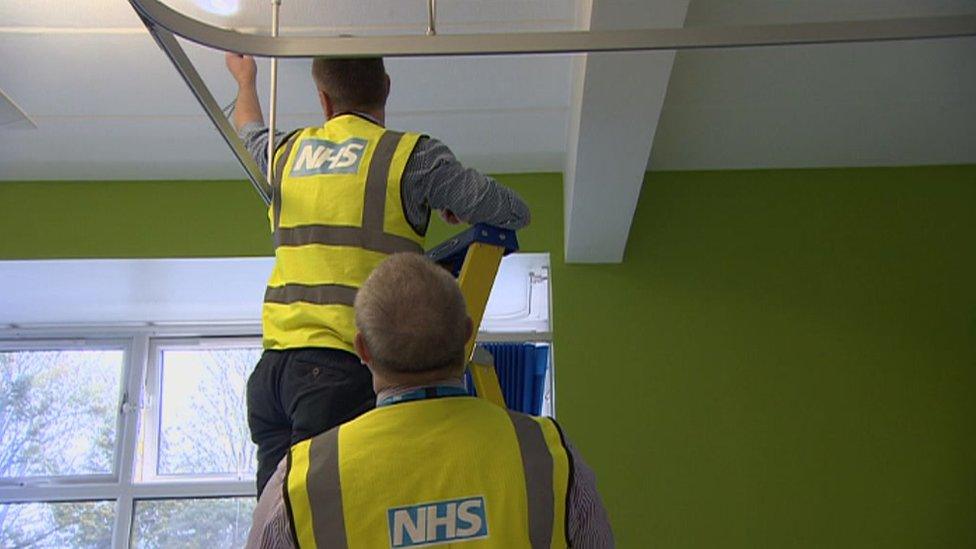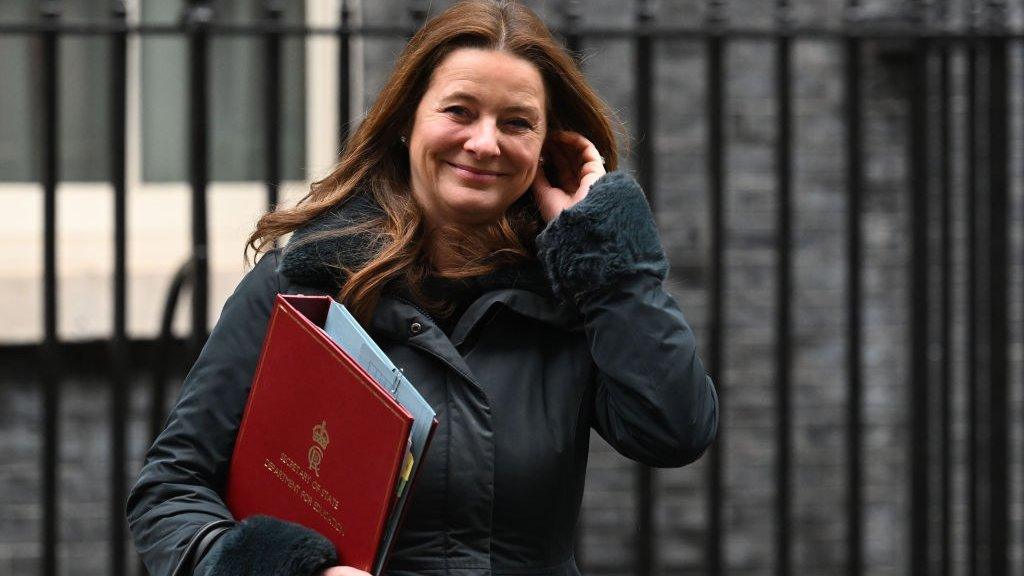School buildings in England to remain closed shut over safety
- Published
- comments

Although schools in England start again next week, more than 100 won't be allowed to reopen buildings that are made of a certain type of concrete.
Schools affected - along with some colleges and nurseries - are being told to make changes and put safety measures in place.
Thousands of pupils may have to be moved into temporary classrooms while work is carried out, and could see the start of their autumn term disrupted.
The vast majority of schools won't be affected and the government has written to heads of affected schools about the issue.
What's the problem?

Some hospital buildings have the same concrete issue and will have to be repaired too
The concrete being talked about is called reinforced autoclaved aerated concrete (RAAC).
RAAC is a lightweight form of concrete, used widely in building between the 1950s and mid-1990s and is not just found in schools - it's also used in a lot of other public buildings like hospitals and police stations.
The Department for Education (DfE) says that any schools building with RAAC "should no longer be open", unless special plans are put in place to make sure it is safe.
School leaders have called for an "urgent plan" to fix buildings and criticised the "scramble" to make alternative plans before term starts.
There are 156 places in England with confirmed RAAC, to according to DfE information. Of those, 52 already had safety plans in place, and 104 were being contacted this week about getting plans in place.
Most schools will be unaffected by this issue and if your school is affected, head teachers are likely to let your parents or guardians know about any changes that need to happen.

Gillian Keegan is the government minister in charge of education in England
Education Secretary Gillian Keegan said: "We must take a cautious approach because that is the right thing to do for both pupils and staff.
"The plan we have set out will minimise the impact on pupil learning and provide schools with the right funding and support they need."
Teachers groups and other political parties have criticised the government for not doing more to fix this problem sooner, saying it knew this was an issue for some schools.
Julie McCulloch from the Association of School and College Leaders, which represents mostly head teachers, said the problem was because governments had "failed to invest" in school buildings.
She said the action was "clearly vital", but said the actions that schools will need to take if they are affected will be "hugely disruptive."
